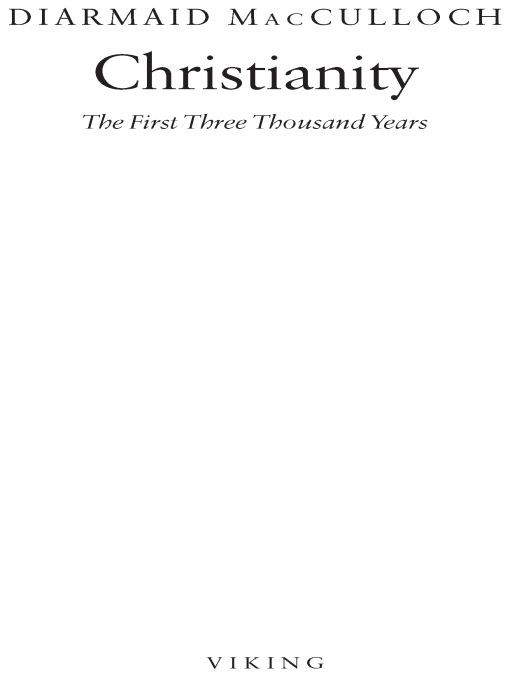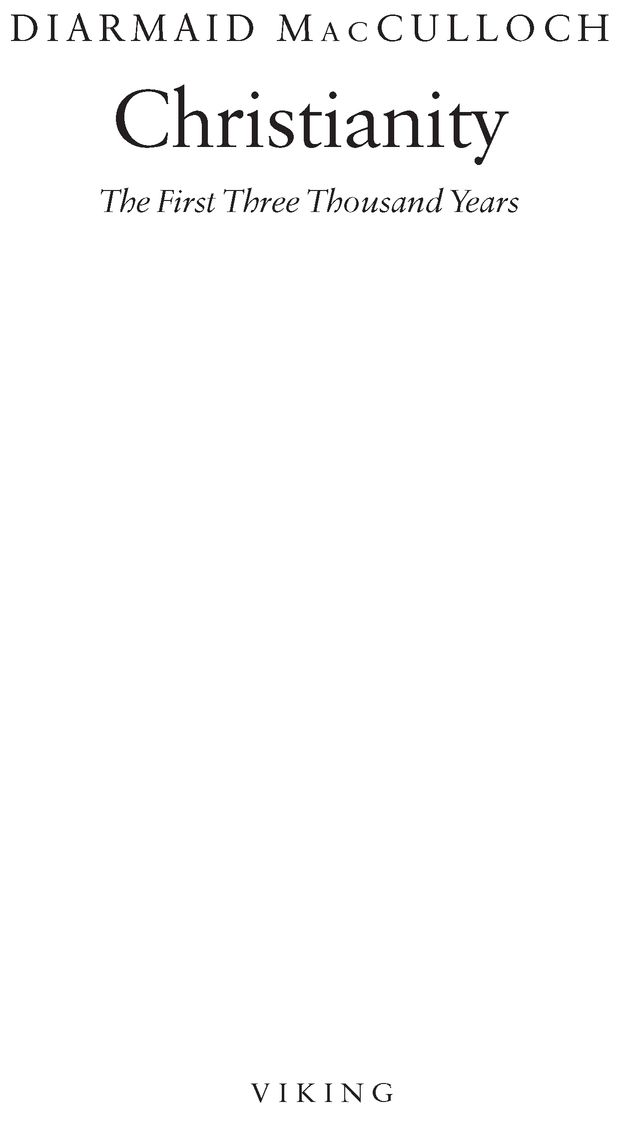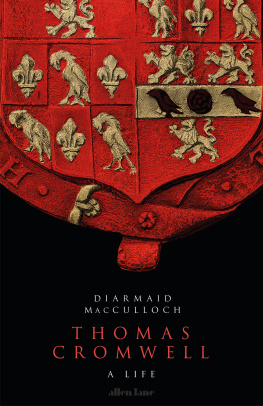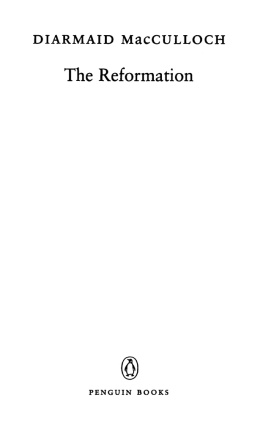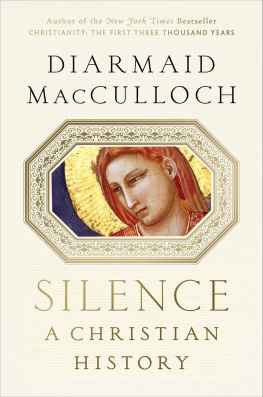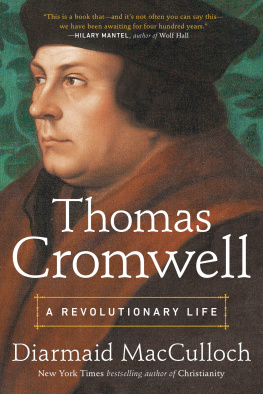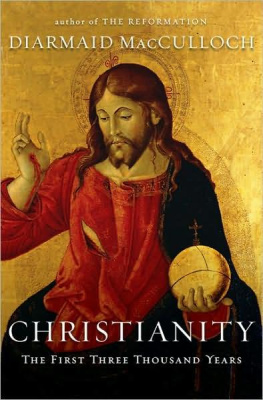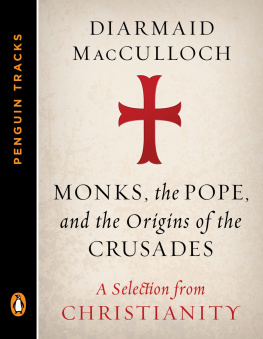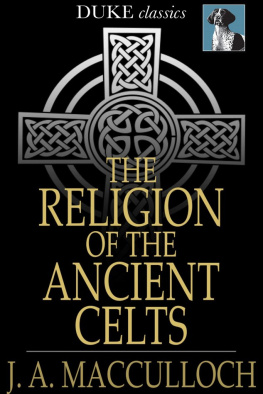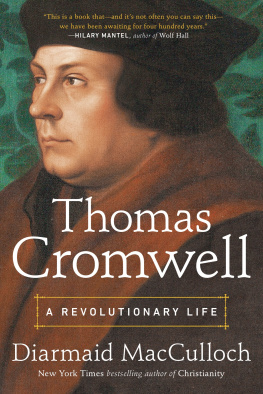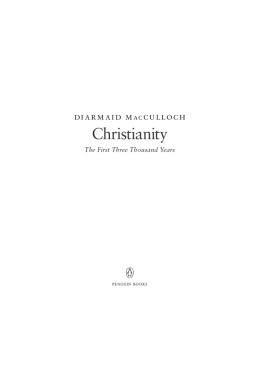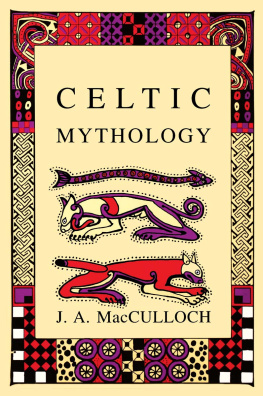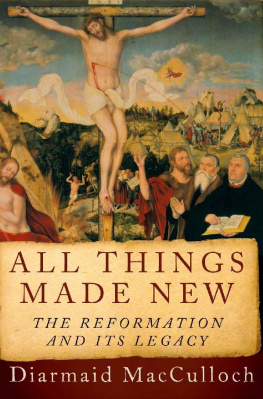Table of Contents
For Philip Kennedy
Faithful friend, who has managed to persist in affirming a Christian story
Acknowledgements
Such a hubristic enterprise as a single-volume history of quite a lot of history floats on a sea of friendship and help. As ever, Stuart Proffitt has been the prince of editors, combining encouragement, critical judgement and a relish for getting prose exactly right, and Joy de Menil and Kathryn Court have also provided thorough and invaluable editorial comment from across the Atlantic. Unflappable and assiduous in their help in preparing the text have been Sam Baddeley, Lesley Levene, Cecilia Mackay and Huub Stegeman. My literary agent, Felicity Bryan, once more had the ability to envisage me writing this book when I might have felt faint-hearted, and has always been there to cheer me on. Many professional colleagues have shown generosity in their conversation and replies to importunacies as I have been constructing the book; some of them have even taken on the penitential task of reading drafts of the text. I am indebted to them all, but particularly to Sam Baddeley, Sebastian Brock, James Carleton Paget, Andrew Chandler, Eamon Duffy, Craig Harline, Philip Kennedy, Judith Maltby, Andrew Pettegree, Miri Rubin, John Wolffe and Hugh Wybrew. I am also grateful for advice on particular points to Sarah Apetrei, Kwabena Asamoah-Gyadu, Pier Giorgio Borbone, Michael Bourdeaux, Frank Bremer, Michael Chisholm, Tom Earle, Massimo Firpo, Peter Groves, Ahmad Gunny, Peter Jackson, Ian Ker, Sangkeun Kim, Graeme Murdock, Matteo Nicolini-Zani, Martin Palmer, Mark Schaan, Bettina Schmidt, Andrew Spicer, Dom Marie-Robert Torczynski, Dom Gabriel van Dijck, Steve Watts, Philip Weller and Jonathan Yonan, and to Pier Giorgio Borbone, Joel Cabrita and John Edwards for permission to quote unpublished material. Remaining imperfections are of course my responsibility and not theirs.
My colleagues in the Theology Faculty and the Humanities Division of the University of Oxford made researching for and writing this book much easier by their forbearance and flexibility in agreeing to my having an extended period of unpaid leave to create it, and I am especially grateful to the Rev. Dr Charlotte Methuen for being my alter ego in the university during this period. It has been a privilege to be a member of a university where there are so many seminars and lectures on offer to give glimpses of specialist wisdom across the whole span of Christian history, and I am grateful to all the convenors and lecturers who have given me a hospitable welcome when, as a bogus asylum seeker, I have sought self-improvement on their shore. As ever, Oxfords wonderfully rich library resources and benevolent librarians have been a luxury at my disposal, and I am particularly appreciative of the help of Alan Brown. As festive companions and encouragers in this venture, my colleagues in the running of the Journal of Ecclesiastical History have been exemplary: Martin Brett, James Carleton Paget, Christine Linehan and Anne Waites.
Colleagues in a different enterprise have been all those involved in making the BBC television series which has accompanied the writing of this book, a mammoth operation which has brought much fun and many varied expeditions round the world. Among the very many involved in that process, I particularly thank Gillian Bancroft, Jean-Claude Bragard, Kathryn Blennerhassett, Nick Holden-Sim, Mike Jackson, Roger Lucas, Erin Mactague, Lucy Robinson, Sian Salt, Graham Veevers and Michael Wakelin. Both projects spanned a new time in my life. I am especially in Sam Baddeleys debt for his friendship and shrewd advice. Support, morale-boosting or wise words have also come from Mark Achurch, Isabel and Rosa Gerenstein, Peter and Bea Groves, Gaynor Humphrey, Philip Kennedy, Craig Leaper, Judith Maltby, Jane Upperton and Allen Young, to name the principals among legion.
Diarmaid MacCulloch
St Cross College, Oxford
Passiontide 2009
Organized Christianity came into existence, and exists, to preserve a treasure, a command to be executed, a promise to be repeated, a mission to be fulfilled. This treasure belongs to past, present, and future; it is potential, yet active; an object of contemplation, yet the inspiration of right conduct. An unfathomable mystery, it must be related to all knowledge. And in their endeavours to guard and transmit their trust, its guardians have raised the most perplexing issues. They have caused endless destruction of life in the name of universal peace. They have built up the most realistic of political systems in the effort to establish a kingdom not of this world. In the exploration of the recesses of the soul, they have developed the arts and sciences, and constructed theories of the universe. And, in their desire to satisfy the deepest needs of mankind, they have raised up against themselves the visions, prophecies, and extravagances of excitable and obstinate men, and the dislike of many sensible men.
The treasure which has caused all this activity was cast into the world with a few simple sentences. Thou shalt love the Lord thy God and thy neighbour as thyself. What shall it profit a man if he shall gain the whole world and lose his own soul? And again, God so loved the world that he gave his only begotten Son, that whosoever believeth in Him should not perish but have everlasting life. No one cometh to the Father, save by Me. Take, eat; this is my body. And again, Go and preach the Kingdom of God. Feed my sheep. Thou art Peter, and upon this rock will I build my Church. Peace I leave with you, my peace I give unto you. I have come not to bring peace, but a sword.
Maurice Powicke, The Christian Life, in The Legacy of the Middle Ages
(Oxford, 1926)
Introduction
In seventeenth-century England, there lived a country parson called Samuel Crossman. A rather reluctant Anglican of Puritan outlook, he spent most of his ministry in a small Gloucestershire parish, whose chief hamlet is delightfully called Easter Compton, though briefly at the end of his life he was Dean of Bristol Cathedral. Crossman wrote a handful of devotional poems, one of which, in a most unusual metre, is a work of genius. Beginning My song is Love unknown, it ends the tale of Jesuss arrest, trial, death and burial with an exclamation of quiet joy that this suffering so long before had shaped the life of Mr Crossman in his little English parsonage:
Here might I stay and sing,
No story so divine;
Never was love, dear King!
Never was grief like Thine.
This is my Friend,
In Whose sweet praise
I all my days
Could gladly spend.
The intimacy of Crossmans lines hints at the degree to which Christianity is, at root, a personality cult. Its central message is the story of a person, Jesus, whom Christians believe is also the Christ (from a Greek word meaning Anointed One): an aspect of the God who was, is and ever shall be, yet who is at the same time a human being, set in historic time. Christians believe that they can still meet this human being in a fashion comparable to the experience of the disciples who walked with him in Galilee and saw him die on the Cross. They are convinced that this meeting transforms lives, as has been evident in the experience of other Christians across the centuries. This book is their story.
There are two thousand years worth of Christian stories to tell, which may seem a daunting task for historians who are used to modern European professional expectations that a true scholar knows a lot about not very much. Yet two millennia are not very much. Christianity has to be seen as a young religion, far younger than, for instance, Taoism, Buddhism, Hinduism or its own parent, Judaism, and it occupies a small fraction of the lived experience of what is so far a very short-lived species. I have given the book a subtitle which invites the reader to consider whether Christianity has a future (the indications, it must be said, can hardly be other than affirmative); yet it also points to the fact that what became Christian ideas have a human past in the minds of people who lived before the time of Jesus Christ. As well as telling stories, my book asks questions. It tries to avoid giving too many answers, since this habit has been one of the great vices of organized religion. Some readers may find it sceptical, but as my old doctoral supervisor Sir Geoffrey Elton once remarked in my hearing, if historians are not sceptical, they are nothing.

